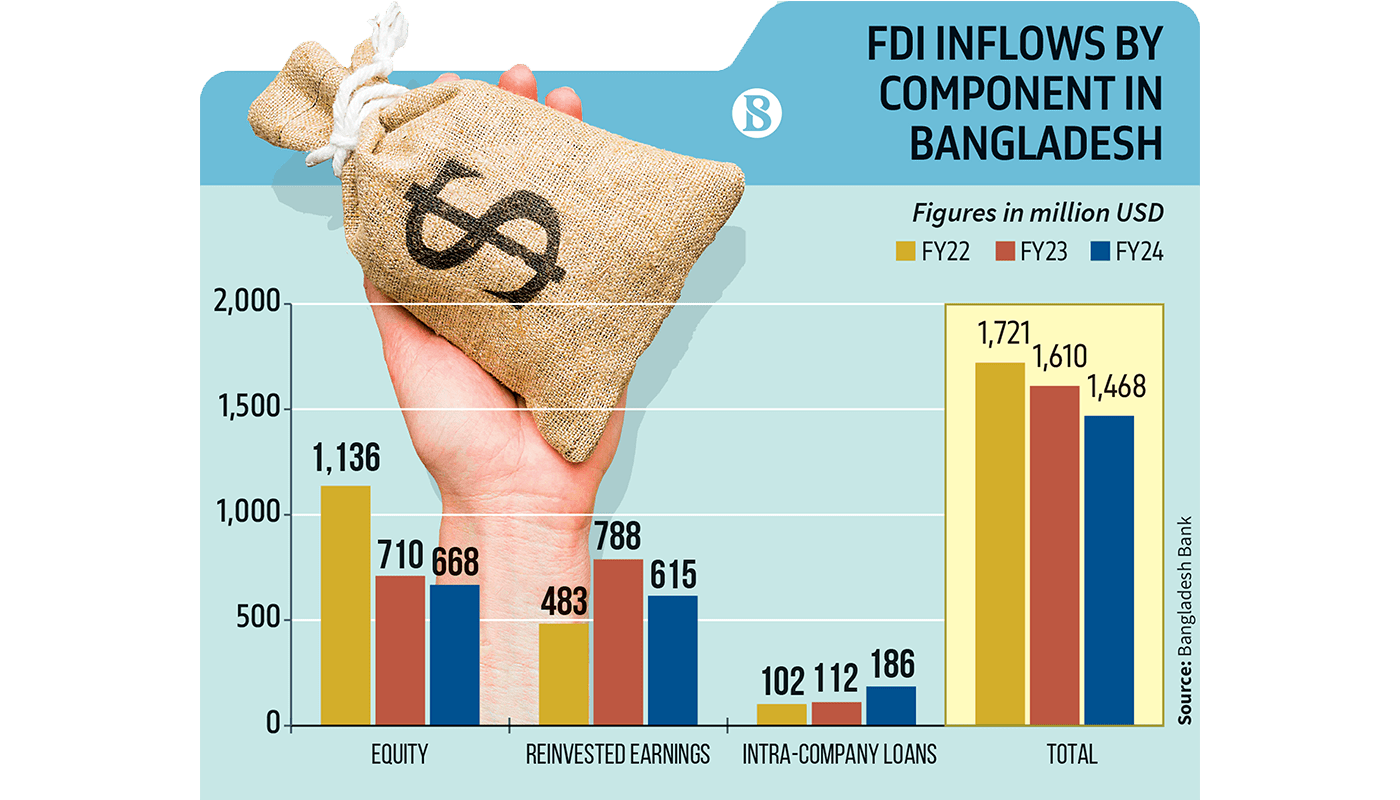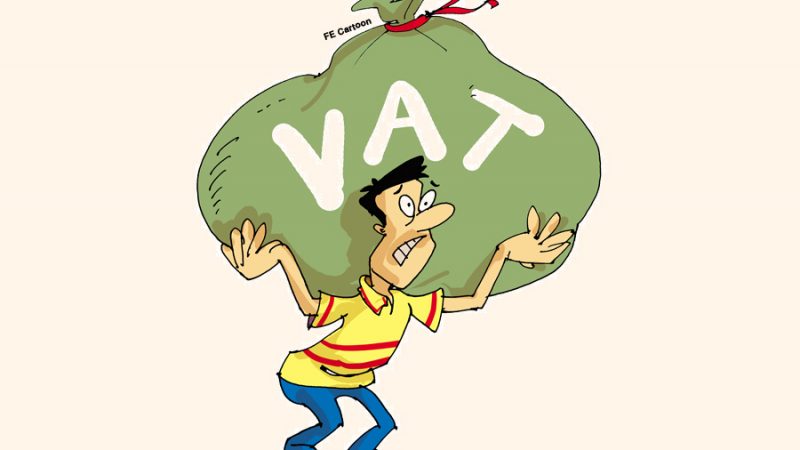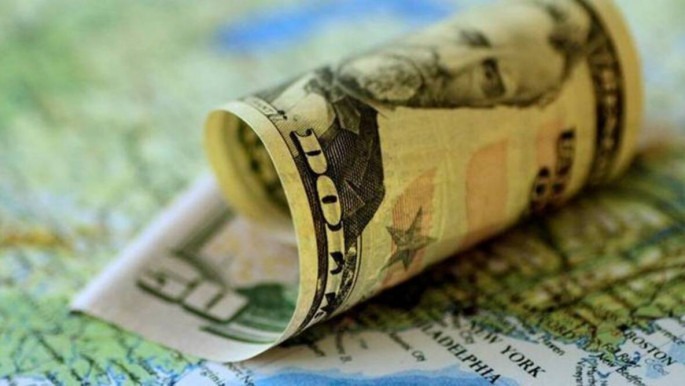FDI drops by 8.8% in FY24 amid economic volatility

The latest central bank data published yesterday states that net FDI inflow dropped from $1.61 billion in FY23 to $1.47 billion in FY24, a decline of $142 million year-on-year
The country’s net foreign direct investment (FDI) inflow fell by 8.8% in FY24 compared to the previous fiscal year due to difficulties in repatriating earnings, a volatile foreign exchange situation, and other economic uncertainties, according to the Bangladesh Bank.
The latest central bank data published yesterday states that net FDI inflow dropped from $1.61 billion in FY23 to $1.47 billion in FY24, a decline of $142 million year-on-year.
Moreover, outstanding FDI from the USA dropped by $2.92 billion in the last six months.
Naser Ezaz Bijoy, CEO of Standard Chartered Bank Bangladesh, attributed the decline in FDI to three primary factors.
“Firstly, the election year impact – election years tend to witness a slowdown in FDI inflows and the 2024 general election in Bangladesh has likely contributed to this trend.
“Secondly, the economic volatility – while the dollar crisis has somewhat eased, lingering economic instability, including currency devaluation, leading investors to adopt ‘wait and see’ approach,” he said.
“Finally, the downgrading of the country’s credit rating: deteriorating credit ratings from international agencies have negatively impacted Bangladesh’s investment appetite, as it had an adverse impact on the risk adjusted return on investments, making it less attractive to foreign investors,” he added.
Economists warn that Bangladesh’s recent credit rating downgrades could further affect FDI. S&P Global Ratings in July 2024 revised Bangladesh’s outlook from stable to negative, citing weakened liquidity and potential policy risks tied to domestic political conditions.
Moody’s Investors Service also downgraded Bangladesh’s rating from Ba3 to B1 in May this year for the first time, though it maintained a stable long-term outlook, indicating no immediate risk to the economy’s creditworthiness.
The slowdown in FDI has also impacted the dollar exchange rate over the past year. According to the central bank, the dollar exchange rate reached Tk121 in June, up from Tk108.40 in July 2023, marking a 10.7% increase.
When asked if downgrades from international agencies hinder investments, Dr Mustafa K Mujeri, chief economist of Bangladesh Bank, told The Business Standard that investors certainly take such ratings into account. “These ratings hold special significance in the global market,” he said, adding, “They reflect the relative strength of the economy. A poor rating negatively impacts investment.”
According to Bangladesh Bank data, $615 million of FY24’s net FDI comprised reinvested earnings. The data also states that 42% of net FDI in the first nine months of FY24 came from reinvested earnings, meaning a significant portion of the country’s FDI inflow originated from returns on existing foreign investments being reinvested in the country.
In response to why reinvested earnings make up a major part of FDI, a senior central bank official explained that the return on investment in Bangladesh is quite attractive, prompting many investors to reinvest their earnings.
However, investors often face challenges in repatriating their earnings, including a dollar shortage, which compels them to reinvest rather than withdraw funds.
In FY24, the highest investment was in the textile and wearing sector, totaling $436 million. The banking sector followed with $230 million in investments, according to the data.
Other sectors, such as pharmaceuticals and chemicals, power, gas and petroleum, and food, also saw substantial investments.
FDI from the USA falls by $2.92 billion
An analysis of central bank data revealed that the FDI stock from the US experienced a steep decline in the first half of 2024, dropping from $3.94 billion in December 2023 to $1.02 billion by June 2024 – a $2.92 billion reduction that accounted for 97% of Bangladesh’s overall $3 billion decrease in FDI stock during this period.
Other countries, including the UK, Singapore, and South Korea, also saw declines in FDI stock in Bangladesh over the past six months.
Regarding the decline in FDI stock from the US, Standard Chartered Bank Bangladesh CEO Naser pointed to the sale of Coca-Cola’s Bangladesh factory to a Turkish company, which likely moved investor location from US to Turkey.
Additionally, the significant pending payments of major players in the energy sector have hindered their ability to repatriate profits, he said, adding, “However, recent improvements in remittance procedures have reduced retained earnings.”
Naser further said Special Envoy of interim government Lutfe Siddiqui and new Bida Chairman Ashik Choudhury will hold a session of State of Investment Climate on 30 October at 6pm. “We expect to receive credible and time bound plans to improve the investment climate in Bangladesh,” he said.
Source: The Business Standard | 30 October 2024







